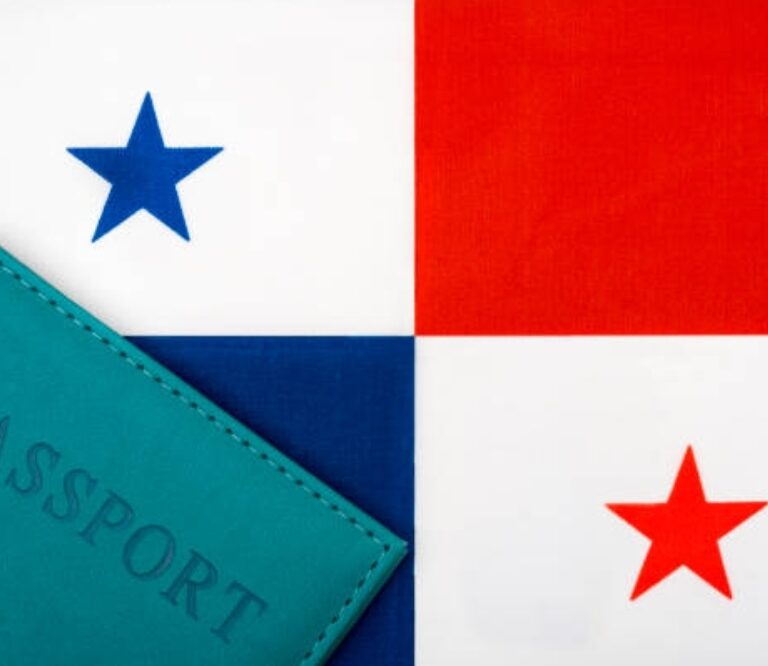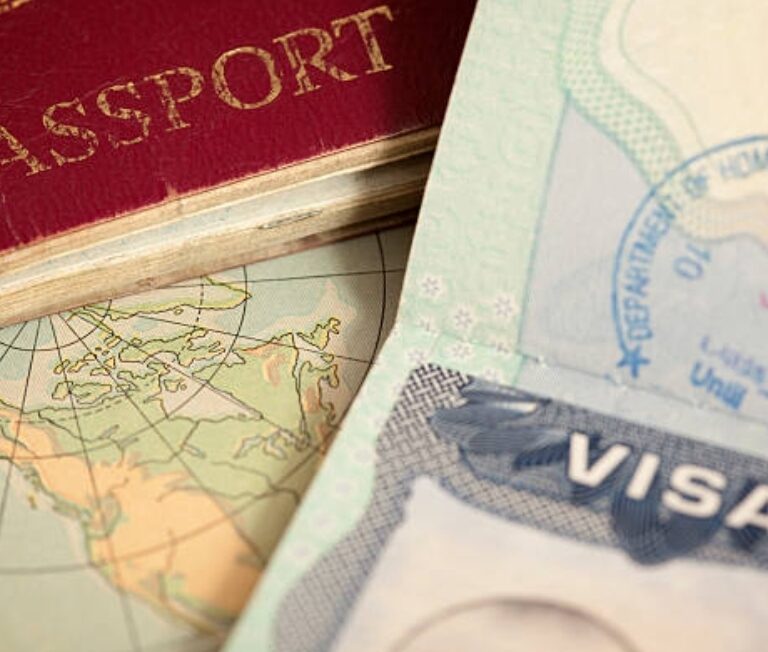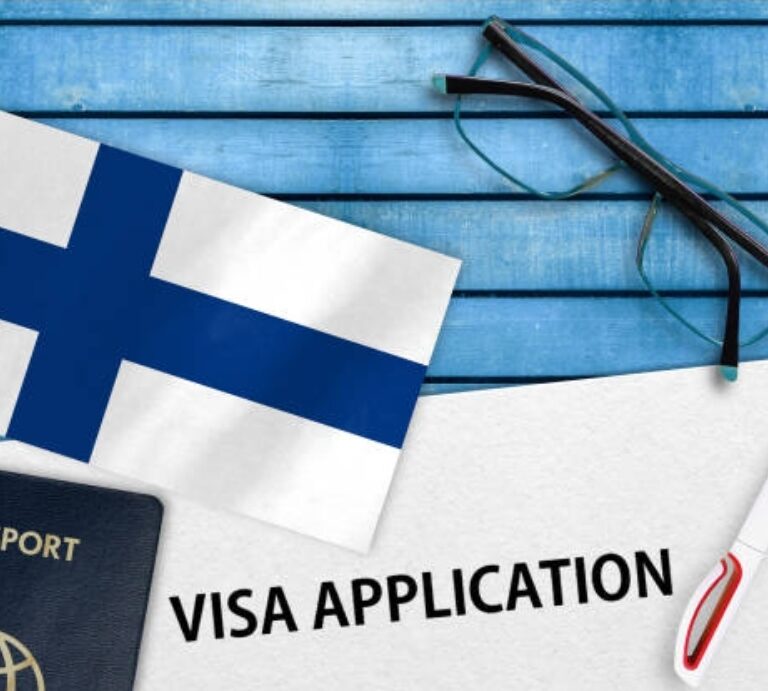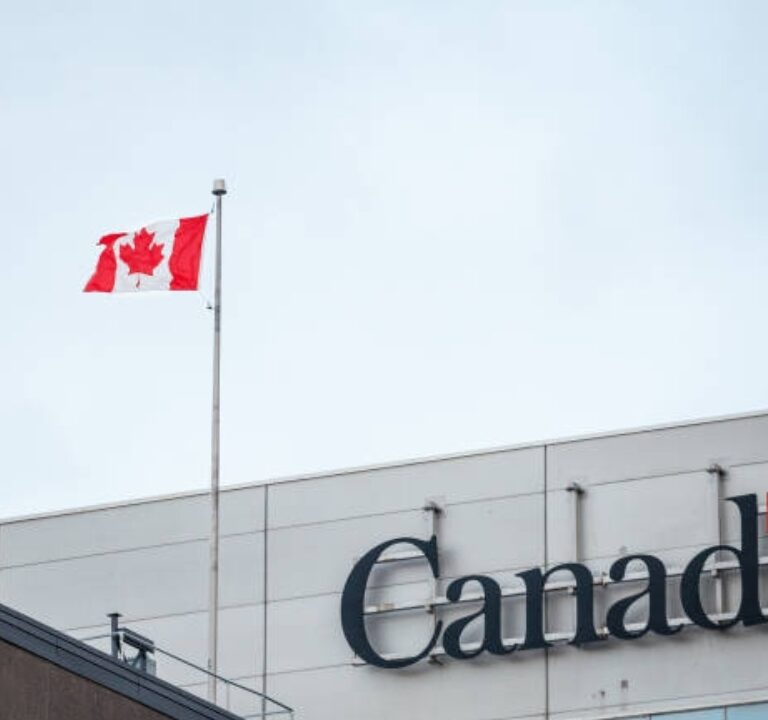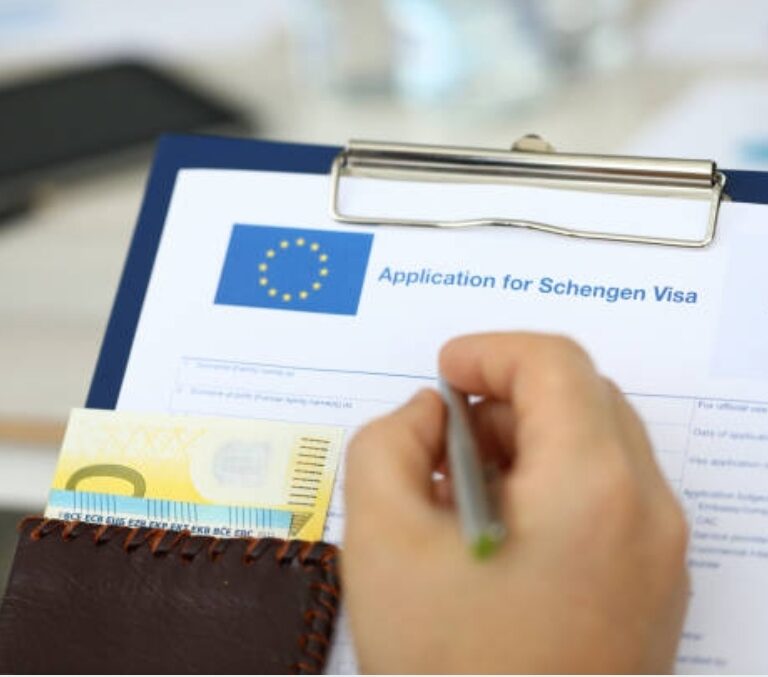Germany Spouse Visa: Your Complete Guide to Family Reunification
Moving to a new country is a significant life event, often driven by career opportunities, education, or the most fundamental reason of all – love and family. If your spouse or registered partner resides in Germany and you wish to join them, the Germany Spouse Visa, officially known as the Visa for the Purpose of Family Reunification (Visum zum Familiennachzug), is your pathway. Germany places a high value on the family unit, enshrined in its Basic Law, making family reunification a well-defined immigration process.
This comprehensive guide will walk you through every aspect of the German Spouse Visa application, from understanding the eligibility criteria to navigating the complexities of documentation, language requirements, and settling in Germany. Whether your partner is a German citizen, an EU/EEA national, or a non-EU citizen with a valid German residence permit, this article aims to provide clarity and support for your journey. Understanding the process thoroughly is crucial, much like understanding the nuances between options like Canada Inland vs. Outland Spousal Sponsorship.
What is the Germany Spouse Visa (Family Reunification Visa)?
The Germany Spouse Visa is a specific type of long-term national visa (Category D) designed for spouses or registered civil partners of individuals legally residing in Germany. Its primary purpose is to allow married couples or registered partners to live together in Germany, upholding the principle of family unity. This visa permits entry into Germany, and upon arrival, the holder must apply for a residence permit (Aufenthaltstitel) specifically for family reunification, which allows for a longer stay and often includes the right to work.
The legal framework for this visa is primarily found in the German Residence Act (Aufenthaltsgesetz – AufenthG), particularly sections 27-36, which govern the subsequent immigration of family members. It differentiates between reunification with German citizens, EU/EEA citizens, and third-country nationals (non-EU/EEA citizens).
Who is Eligible for the Germany Spouse Visa?
Eligibility hinges on requirements for both the sponsoring partner already in Germany and the applicant spouse/partner residing abroad.
Requirements for the Sponsor in Germany:
- Legal Residence Status: The sponsor must generally be one of the following:
- A German citizen.
- A citizen of another EU country, an EEA country (Iceland, Liechtenstein, Norway), or Switzerland, exercising their right to free movement (e.g., working, studying, self-sufficient).
- A non-EU/EEA citizen (third-country national) holding a valid German residence permit. Common permits include those for skilled employment (including the EU Blue Card), self-employment, research, or a settlement permit (Niederlassungserlaubnis). Some temporary permits (like student visas under specific conditions) might allow reunification, but often with stricter rules.
- Sufficient Financial Resources (Lebensunterhaltssicherung): The sponsor must prove they can financially support both themselves and the joining spouse/partner without recourse to public funds (like Bürgergeld, formerly ALG II/Hartz IV). The required income level depends on the family size and living costs (especially rent) in their specific German location. As a rough guide, a single person bringing a spouse might need around €2,050 net monthly income, but this is indicative and assessed individually. Income sources like employment, self-employment, or sufficient savings (potentially via a blocked account covering several years) are considered. Parental allowance and child benefits can sometimes be included in the calculation.
- Adequate Accommodation (Ausreichender Wohnraum): The sponsor must have stable accommodation with enough living space for the family. While exact requirements vary slightly by state, a general rule is approximately 12 square meters per person aged 6 and over, and 10 square meters per person under 6 (excluding kitchen, bathroom, hallway). Proof is typically a rental agreement (Mietvertrag) or property ownership documents. Finding suitable housing can be challenging, similar to the search for Affordable Temporary Housing Options in the UK for Immigrants: Alternatives to Airbnb.
- Health Insurance: The sponsor must ensure the family will have adequate health insurance coverage upon the applicant’s arrival in Germany. This usually means the applicant can join the sponsor’s statutory health insurance (gesetzliche Krankenversicherung) or that sufficient funds are available for private insurance (private Krankenversicherung).
Requirements for the Applicant Spouse/Partner Abroad:
- Valid Marriage or Registered Partnership: You must be legally married or in a registered civil partnership recognized by German law. Both partners must generally be at least 18 years old. The marriage/partnership must be genuine and subsisting, not entered into solely for immigration purposes.
- Basic German Language Skills (A1 Level): In most cases, spouses joining non-EU or German nationals need to demonstrate basic German language proficiency (Level A1 of the Common European Framework of Reference for Languages – CEFR). This requirement aims to facilitate initial integration. There are significant exceptions (discussed later).
- Valid Passport: You must possess a valid national passport.
- No Grounds for Refusal: You must not pose a threat to public order, security, or health in Germany.
The Application Process: Step-by-Step
Applying for the Germany Spouse Visa involves several stages, typically starting in your home country and concluding in Germany.
- Gather Required Documents: Compile all necessary paperwork meticulously. This is often the most time-consuming part. (See detailed list below). Ensure foreign documents like marriage certificates are properly legalized or apostilled and translated into German by a certified translator.
- Book a Visa Appointment: Schedule an appointment at the German Embassy or Consulate General responsible for your place of residence. Waiting times for appointments can be long, so book well in advance. Some missions use external service providers like VFS Global or TLScontact for appointment booking and application submission.
- Complete the Application Form: Fill out the national visa application form accurately and completely. This can often be done online via the VIDEX platform, then printed and signed.
- Attend the Visa Interview & Submit Application: Attend your appointment, submit the completed application form, all required documents (originals and copies), and provide biometric data (fingerprints). You will likely be asked questions about your relationship, your spouse in Germany, and your plans. Be truthful and consistent.
- Pay the Visa Fee: The standard fee for a national visa is €75. However, applications for spouses of German or EU citizens are typically free of charge. Fees are usually paid in local currency at the time of application.
- Visa Processing: The German mission forwards the application to the relevant Foreigners’ Authority (Ausländerbehörde) in Germany where your spouse resides. The Ausländerbehörde checks the sponsor’s eligibility (finances, accommodation). This communication can take time. Processing times vary widely, often ranging from 8-12 weeks but potentially taking several months, especially if document verification is needed or application volumes are high.
- Visa Issuance and Travel: If approved, you will receive a national visa sticker in your passport, usually valid for three to six months, allowing entry into Germany for the purpose of family reunification.
- Entry into Germany and Registration (Anmeldung): Travel to Germany within the visa’s validity period. Within one or two weeks of arrival (deadlines vary locally), you must register your address at the local Residents’ Registration Office (Einwohnermeldeamt or Bürgeramt). This is called the “Anmeldung”.
- Apply for the Residence Permit (Aufenthaltstitel): Before your entry visa expires, book an appointment and apply for the formal residence permit for family reunification at the local Foreigners’ Authority (Ausländerbehörde). You will need to submit further documents, often including your Anmeldung confirmation, proof of health insurance in Germany, and potentially updated financial/accommodation proof from your spouse.
Required Documents Checklist
Documentation is critical. While specific requirements can vary slightly by embassy/consulate and individual circumstances, the following list covers the standard documents needed. Always check the exact checklist provided by the German mission in your country. Submit originals along with one or two sets of A4-sized photocopies as requested (do not staple).
| Document Category | Specific Documents | Notes |
| Applicant’s Documents | – Completed & Signed National Visa Application Form (VIDEX) – Valid Passport (issued 10 years ago, valid 3+ months beyond intended stay, min. 2 blank pages) – 2 Recent Biometric Passport Photos (per German specs) – Basic German Language Certificate (A1) |
A1 certificate usually required unless exempt (see language section). Photos must meet specific biometric standards. Passport copies usually include the data page. |
| Sponsor’s Documents | – Copy of Sponsor’s Passport/German ID Card – Copy of Sponsor’s Residence Permit (if non-German/EU) – Sponsor’s Registration Certificate (Meldebescheinigung – not older than 6 months) – Proof of Financial Means (e.g., recent payslips, employment contract, tax assessment) – Proof of Accommodation (Rental agreement/property deed) |
Demonstrates sponsor’s legal status, financial stability, and adequate housing in Germany. |
| Joint Documents | – Proof of Relationship: Marriage Certificate / Registered Partnership Certificate – Travel Health Insurance (initially for visa validity) – Visa Fee Payment Receipt (if applicable) Potentially: Previous divorce decrees, birth certificates of children |
Marriage/Partnership certificate must be legalized/apostilled & translated. Proof of relationship might include wedding photos or communication records if requested. |
This table provides a general overview. Always consult the specific requirements of the relevant German mission.
The German Language Requirement (A1 Level)
The requirement for basic German skills (A1 CEFR level) for the immigrating spouse is intended to ease initial integration. A1 means you can understand and use familiar everyday expressions and very simple sentences related to concrete needs (e.g., introduce yourself, ask for directions, shop for groceries).
Proof: This is typically demonstrated via a language certificate from an ALTE-certified institution (Association of Language Testers in Europe). Accepted certificates usually include:
- Goethe-Institut: Start Deutsch 1
- telc GmbH: telc Deutsch A1
- ÖSD: ÖSD Zertifikat A1
- TestDaF: Specific tests may be applicable, check with the embassy.
The certificate should generally not be older than one year when the visa is issued.
Exceptions: Proof of A1 German is NOT typically required if:
- Your spouse is a citizen of an EU/EEA country or Switzerland.
- Your spouse is a German citizen who has exercised EU free movement rights (e.g., lived/worked in another EU country before returning to Germany).
- Your spouse holds certain residence permits, including:
- EU Blue Card (18b Abs. 2 AufenthG)
- Residence permit as a skilled worker (18a, 18b Abs. 1 AufenthG)
- Residence permit as a researcher (18d AufenthG)
- ICT Card (19 AufenthG)
- Certain permits for IT specialists, self-employed (21), or those in special positions (19c AufenthG)
- A settlement permit (18c AufenthG) issued based on previous skilled work permits.
- You hold a university degree or equivalent qualification (may indicate high integration potential).
- There is an obvious, temporary reason for the stay in Germany.
- You cannot acquire the skills due to a significant physical, mental, or psychological illness or disability.
- Acquiring the language abroad is impossible, unreasonable, or has been demonstrably unsuccessful despite serious efforts (assessed on a case-by-case basis, often requiring strong evidence).
- Your integration needs appear recognizably low (rarely applied).
If you believe an exception applies, discuss it with the German embassy/consulate when applying. They make the final determination. Some individuals looking How to Search a Partner Abroad with Free Visa Sponsorship might also consider language requirements early on.
Meeting the Financial Requirements
Proving sufficient financial means (Sicherung des Lebensunterhalts) is a cornerstone of the application. The sponsor must demonstrate they can cover the living costs for the entire family unit without relying on state social assistance benefits like Bürgergeld.
Calculating Needs: The Foreigners’ Authority calculates the family’s required monthly income based on standard rates (Regelbedarf) defined in the Social Code Book II (SGB II), plus the actual “warm” rent (including heating and basic utilities) and health insurance costs. The sponsor’s verifiable net income must exceed this calculated requirement.
Proof of Income: Accepted proof varies based on the sponsor’s situation:
- Employees: Recent payslips (usually last 3-6 months), employment contract.
- Self-employed/Freelancers: Recent tax assessment notice (Steuerbescheid), certificate from a tax advisor (Steuerberater) confirming average monthly net income, business registration, bank statements.
- Other: Pension statements, proof of sufficient savings (e.g., bank statements, potentially a blocked account covering required funds for a period, though less common for sponsors already established).
Income like child benefits (Kindergeld) or parental allowance (Elterngeld) may be counted towards the total income in certain contexts. The assessment considers stable and predictable income. It’s vital that the sponsor’s financial situation is secure. For spouses planning to work after arrival, exploring potential fields like Web Developer Jobs with Visa Sponsorship in Canada (as an illustrative example of international demand) might inform future planning, though the actual German job market will differ.
Accommodation Requirements
The sponsor needs to show they have secured adequate housing for the family. “Adequate” refers primarily to size and basic standards.
- Size: As mentioned, typically 12 sqm per person over 6 years old and 10 sqm for younger children (excluding kitchen, bathroom, storage). A couple would generally need an apartment of at least 24 sqm living space plus utilities. Local authorities have the final say, and requirements might be slightly higher in some areas.
- Proof: The primary proof is a signed rental agreement (Mietvertrag) clearly stating the size (Wohnfläche) and address. If the sponsor owns property, the property deed or land register extract (Grundbuchauszug) serves as proof. A confirmation letter from the landlord (Wohnungsgeberbestätigung) is also essential for registration (Anmeldung) upon arrival.
Potential Job Opportunities and Integration
Upon receiving the residence permit for family reunification, the spouse generally gains the unrestricted right to work in Germany, either through employment or self-employment. This is a significant advantage, allowing the joining spouse to contribute financially and integrate professionally.
While the job market varies, Germany has needs across various sectors. Depending on qualifications and German language skills (often B1/B2 level is needed for qualified positions), spouses might explore different career paths. Although the following table uses Canadian job examples and salary estimates (provided for illustrative purposes only, German salaries and specific roles will differ), it showcases types of roles potentially available in developed economies, some of which might align with needs in Germany. Finding work often requires adapting skills and potentially seeking further qualifications or recognition of foreign credentials.
Improving German language skills beyond A1 is crucial for better job prospects and social integration. Attending an integration course (Integrationskurs), which includes language and orientation modules, is often highly recommended and sometimes mandatory.
Health Insurance in Germany
Health insurance is compulsory for all residents in Germany. When applying for the spouse visa, you typically need travel health insurance valid for the Schengen area covering the initial period until you can enroll in a proper German health insurance scheme.
Upon arrival and registration, the joining spouse usually enrolls in the German health insurance system.
- Statutory Health Insurance (Gesetzliche Krankenversicherung – GKV): If the sponsoring spouse is a member of the GKV, the joining spouse can often be co-insured free of charge under the family insurance plan (Familienversicherung), provided they have little or no income of their own.
- Private Health Insurance (Private Krankenversicherung – PKV): If the sponsor has private insurance, or if the joining spouse is not eligible for family insurance (e.g., high income), they will need their own private health insurance policy.
Proof of forthcoming enrollment in a German scheme is required when applying for the residence permit.
Processing Time and Fees
Processing Time:
- Visa Application: As mentioned, the official processing time for a national visa can range from several weeks to several months (commonly cited as 8-12 weeks or 1-3 months, but potentially longer). Delays can occur due to high application volumes, the need for document verification (which can add months), or incomplete applications. Apply well in advance of your intended travel date.
- Residence Permit Application: After arrival, applying for the residence permit at the Ausländerbehörde also involves processing time, which varies locally. Waiting times for appointments can also be significant.
Fees:
- National Visa Fee: €75 (often waived for spouses of German/EU citizens).
- Residence Permit Fee: Approximately €100-€110 for the initial issuance.
- Other Costs: Factor in costs for document legalization/apostille, certified translations, language course/exam fees, travel health insurance, and travel to Germany.
After Arrival in Germany: Key Steps
Once you arrive in Germany with your spouse visa, several crucial steps must be taken:
- Register Your Address (Anmeldung): Within 1-2 weeks, register at the local Residents’ Registration Office (Einwohnermeldeamt/Bürgeramt). You’ll receive a registration confirmation (Meldebescheinigung), which is needed for many other administrative processes, including opening a bank account and applying for the residence permit.
- Open a Bank Account: Having a German bank account (Girokonto) is essential for daily life, receiving salary, and paying bills.
- Enroll in Health Insurance: Finalize your enrollment in either the statutory (GKV) or private (PKV) health insurance system.
- Apply for Residence Permit (Aufenthaltstitel): Schedule an appointment and apply for your residence permit for family reunification at the local Foreigners’ Authority (Ausländerbehörde) before your entry visa expires. Bring all required documents, including your passport with the visa, Meldebescheinigung, proof of health insurance, marriage certificate, and potentially updated proof of your spouse’s income and accommodation.
- Attend Integration Course (Integrationskurs): Depending on your language skills and background, the Ausländerbehörde might oblige you or strongly recommend attending an integration course. This course covers German language up to B1 level and provides orientation about German law, culture, and history. Even if not mandatory, it’s highly beneficial.
Rights and Obligations with the Residence Permit
Your residence permit for family reunification grants you specific rights and obligations:
- Right to Reside: You can legally live in Germany with your spouse. The initial permit is usually granted for one to three years and can be extended if the conditions (marriage subsisting, financial support, etc.) continue to be met.
- Right to Work: The residence permit typically includes full permission to work – both employed and self-employed – without needing a separate work permit.
- Access to Social Benefits: While the initial requirement is not to rely on public funds, access to certain benefits like child benefits (Kindergeld) or integration course subsidies is generally available. Access to unemployment or social assistance benefits may be restricted initially but becomes possible later under certain conditions.
- Path to Permanent Residency: After residing in Germany for a certain period (often three years for spouses of German citizens, five years for spouses of others, provided the marriage continues and other requirements like language skills (B1) and financial independence are met), you can usually apply for a permanent settlement permit (Niederlassungserlaubnis).
- Obligation to Integrate: You are expected to make efforts to integrate into German society, primarily by learning the German language. Attending an integration course might be mandatory. You must adhere to German laws.
Comparing Spouse Visa Pathways
Understanding how Germany’s process compares to other countries can be helpful. Below is a simplified comparison, highlighting key aspects.
| Feature | Germany | Canada (Example Context) | USA (Example Context) |
| Visa Type | National Visa (D) for Family Reunification, then Residence Permit (Aufenthaltstitel) | Spousal Sponsorship (Inland/Outland options exist – see Canada Inland vs. Outland) leading to Permanent Residence | Immigrant Visa (CR1/IR1) – see US CR1/IR1 Spouse Visa Guide or K-1 Fiancé(e) visa, leading to Green Card (Permanent Residency) |
| Language Requirement (Spouse) | Basic German (A1) often required, with many exceptions (e.g., spouse of EU Blue Card holder, EU citizen). A key part of German integration policy. | No mandatory language test for spouse sponsorship application itself, but language ability is crucial for integration and citizenship. | English proficiency not formally required for the visa application, but necessary for naturalization (citizenship). |
| Financial Proof | Sponsor must prove sufficient income/funds to support family without state aid (specific threshold based on needs/rent). | Sponsor must meet Minimum Necessary Income (MNI) requirement (except if sponsoring only spouse/partner/child with no dependents), proven via tax documents (Notice of Assessment). | Sponsor must meet minimum income requirement (125% of Federal Poverty Guidelines), proven via tax returns, employment letter. Affidavit of Support (I-864) is crucial. |
| Work Rights for Spouse | Generally granted full work rights with the residence permit. | Sponsored spouse gets Permanent Resident status upon approval, which includes the right to work. Open work permits may be available during inland processing. | Granted right to work upon receiving Green Card (Permanent Resident status). |
| Processing Times | Visa: Weeks to several months. Residence Permit: Additional time after arrival. | Variable, often 12+ months for standard cases, potentially faster/slower depending on specifics and location. | Variable, CR1/IR1 often 12-18+ months. K-1 can be faster initially but requires adjustment of status in the US. |
This table offers a simplified comparison for illustrative purposes. Processes and requirements are complex and subject to change.
Challenges and Tips for a Smooth Application
While Germany facilitates family reunification, challenges can arise:
- Bureaucracy and Processing Times: Dealing with German bureaucracy can be complex, and waiting times for appointments and decisions can be long and stressful. Tip: Start early, be patient, keep copies of everything, and follow up politely if deadlines pass significantly.
- Document Legalization and Translation: Ensuring documents like marriage certificates are correctly legalized/apostilled and translated by certified translators can be complicated and costly. Tip: Research the exact requirements for documents from your country well in advance.
- Financial Proof: Meeting the income threshold can be difficult, especially for sponsors who are students, recently employed, or self-employed with variable income. Tip: Gather extensive financial documentation. If income is borderline, consider demonstrating significant savings or exploring options like a formal obligation letter (Verpflichtungserklärung) from a third party (though this is complex and not always accepted for family reunification).
- Language Barrier: Even with A1, navigating daily life and administrative processes can be hard initially. Tip: Continue learning German diligently before and after arrival. Utilize resources like the integration course.
- Accommodation: Finding suitable and affordable housing, especially in larger cities, can be very challenging. Tip: Start the search early, use multiple online platforms and local contacts, and be prepared to potentially accept temporary housing initially.
Special Cases and Considerations
- EU/EEA/Swiss Citizens: Spouses of EU/EEA/Swiss citizens exercising free movement rights in Germany have a much simpler process. They generally do not need a visa to enter (though visa requirements depend on the applicant’s nationality) and apply directly for a residence card (Aufenthaltskarte) after arrival, usually with less stringent financial proof and no language requirement for the permit itself.
- Same-Sex Partners: Registered civil partners (eingetragene Lebenspartner) have the same rights to family reunification as married spouses.
- Joining Refugees: Spouses of recognized refugees or beneficiaries of subsidiary protection may benefit from privileged family reunification, potentially waiving financial and accommodation requirements if the application is filed soon after protection status is granted. Language requirements might also be waived initially.
- Subsequent Immigration of Children: Minor, unmarried children can generally immigrate with a parent or join parents already in Germany, subject to conditions regarding custody, financial support, and accommodation. Language requirements for children depend on age (typically not required for younger children, potentially required for older teenagers).
Conclusion: Your Journey to Reunification
The path to joining your spouse in Germany through the Family Reunification Visa requires careful preparation, attention to detail, and patience. Understanding the eligibility criteria, gathering the correct documents, meeting the language and financial requirements, and navigating the application process are crucial steps. While challenges exist, Germany’s commitment to family unity provides a clear framework for couples to build their life together in the country.
Start planning early, utilize the resources available from German embassies and consulates, fulfill the requirements diligently, and look forward to beginning your new chapter together in Germany. Good luck!







